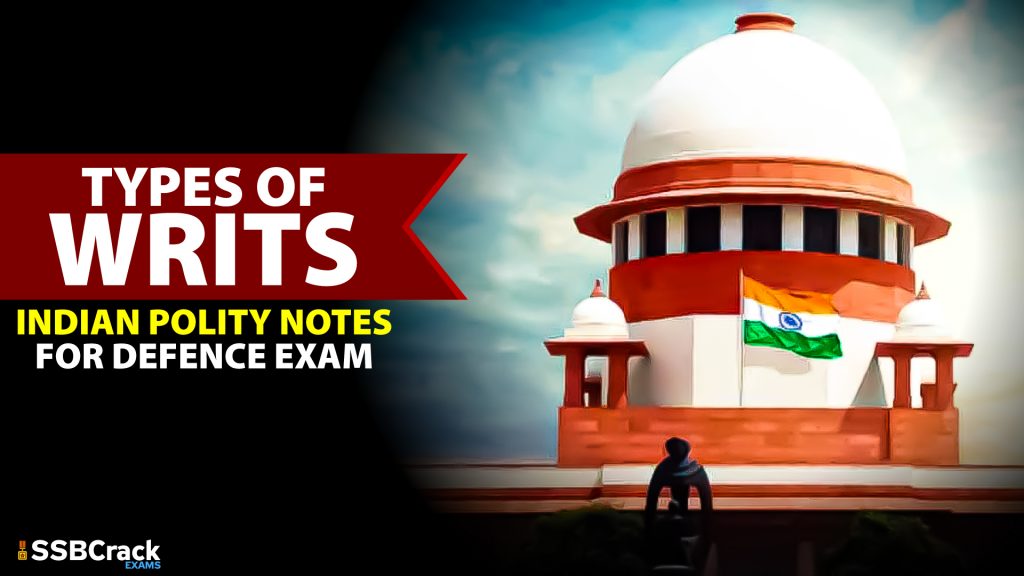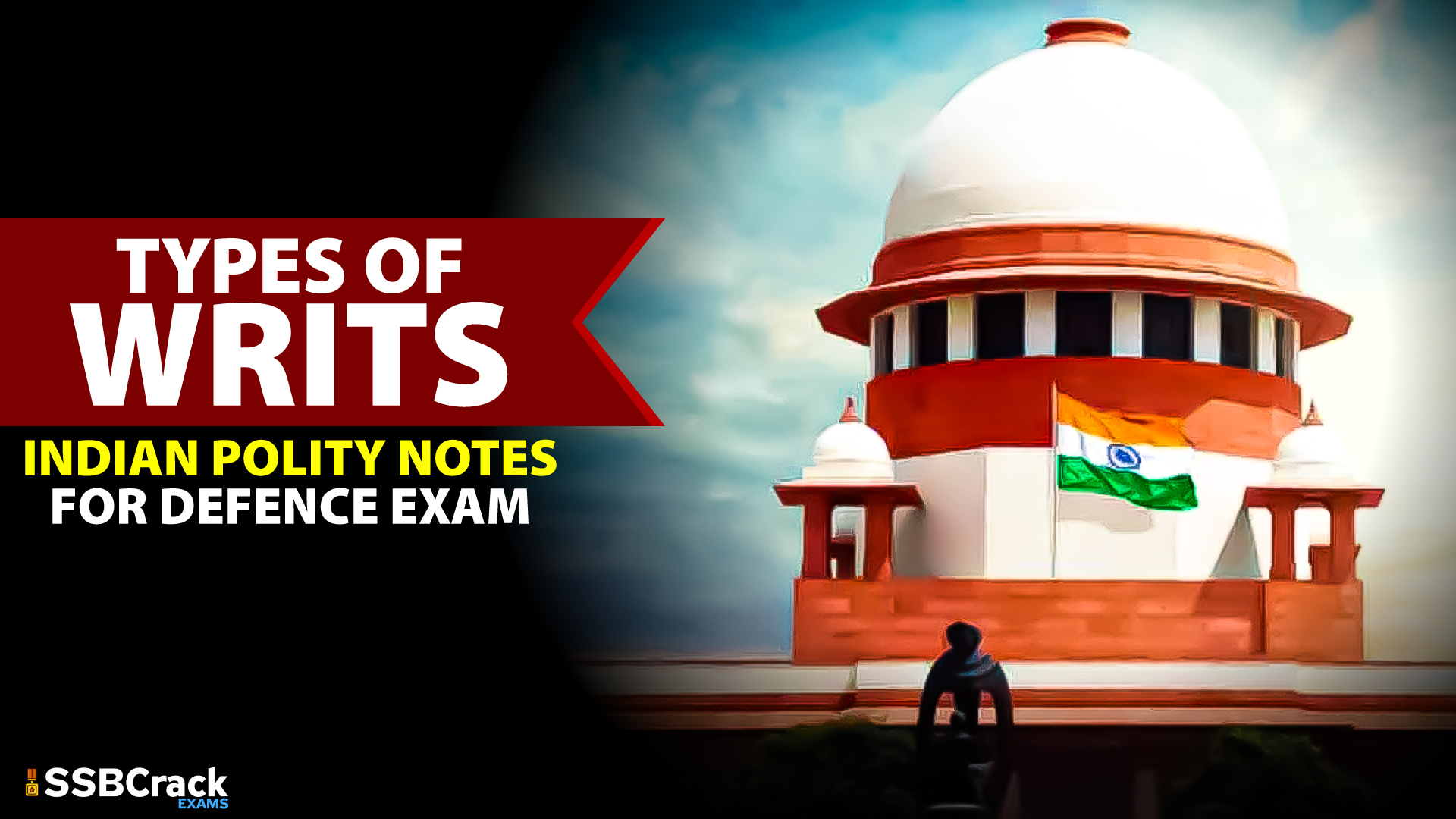
Writs are written orders issued by the Supreme Court or a High Court directing constitutional remedies for Indian citizens who have had their basic rights violated. Article 32 of the Indian Constitution addresses constitutional remedies available to an Indian citizen from the Supreme Court and High Court in the event of a violation of his or her basic rights. The Supreme Court has the ability to issue writs for the enforcement of rights under the same article, whereas the High Court has the same power under Article 226. There are five types of writs according to the Indian constitution.
They are :
- Habeas Corpus
- Mandamus
- Prohibition
- Certiorari
- Quo-Warranto
Habeas Corpus
Habeas Corpus literally translates as “to have the body of.” The court can utilise this writ to physically bring any individual who has been detained or imprisoned before it. The court then looks into the grounds for his imprisonment, and if there is no legal basis for his detention, he can be released. In the following situations, a writ of execution may be issued:
- When a person is detained and fails to appear before a magistrate within 24 hours
- When a person gets arrested for no reason other than a breach of the law.
- When a person is arrested under an unlawful legislation
- When detention is done maliciously or with the intent to hurt the individual.
Thus, the writ of habeas corpus is often referred to as a bulwark of individual liberty against arbitrary detention. A common guideline for petition filing is that a person whose right has been violated must file a petition. However, Habeas corpus is an exemption, and anybody on the detainee’s behalf can make a petition. The writ of habeas corpus also applies to preventative imprisonment. This writ can be issued against both public officials and individuals.
Mandamus
Mandamus is Latin for “we command.” This writ is a court order that asks a state official, public body, corporation, inferior court, tribunal, or government to undertake obligations that they have refused to do. Mandamus is known as a “wake-up call” because it wakes up sleepy officials to do their duties. Mandamus, in this way, requires action and puts the power in motion. Mandamus cannot be given in the following circumstances:
- a private person or a private body
- if the duty in question is discretionary rather than obligatory.
- to execute any form of commercial contract against the president or governors of states against a functioning chief justice
Any individual who wants a legal duty to be performed by a person or a body can file a petition for writ of mandamus. The individual filing the document must have a genuine or particular interest in the subject topic, as well as the legal right to do so.
Prohibition
The writ of prohibition allows the Supreme Court and High Courts to order lesser courts, such as special tribunals, judges, commissioners, and other judicial officers, to refrain from acting in ways that are beyond their jurisdiction or in violation of the norm of natural justice. If a judicial officer has a personal interest in a case, for example, it may impede the decision and the natural justice process.
NOTE:Whereas Mandamus rules action, Prohibition rules idleness. While a mandamus can be issued against any public official, public body, company, inferior court, tribunal, or government, a prohibition can only be imposed against judicial and quasi-judicial authorities and NOT administrative or legislative authorities.
Certiorari
Certiorari is Latin for “to certify.” It is a writ that directs the transfer of a lawsuit from an inferior court to a higher court. It is given by a higher court to a subordinate court or tribunal to either transfer or dismiss a matter that is pending with that court or tribunal. This is usually done when the superior court finds that the subordinate court lacked jurisdiction or made a legal mistake. As a result, certiorari might be thought of as a corrective writ.
Quo Warranto
Quo warranto is Latin for “by what warrant?” This writ is issued to inquire into the legitimacy of a person’s or public office’s claim. It forbids a person or authority from acting in an office to which he or she is not qualified, and so prevents anybody from usurping public office. This writ applies solely to public offices and not to private offices.
The readers can subscribe to SSBCrackExams to get more informative articles in their feed. All the best.
Also Read:







